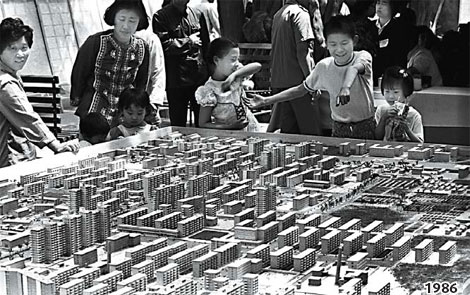|
|
 |
|
30th Anniversary Celebrations
New Rural Reform Efforts
Political System Reform
Changing Lifestyle
In Foreigners' Eyes
Commentary
Enterprise Stories
Newsmakers
Photo Gallery
Video and Audio
Wang Wenlan Gallery
Slideshow
Key Meetings
Key Reform Theories
Development Blueprint
Liu Shinan:
Don't go too far in name of sex education Hong Liang:
US should fix its own economic woes first Chen Weihua:
Need for medical privacy OP Rana:
This world dream can't be deferred Home sweet home
By You Nuo (China Daily)
Updated: 2008-10-28 09:34
   Not many industries can be as both important and hard to manage as housing, as many economic watchers have begun to realize. Much of a society's consumer spending is tied to the pattern of its housing/real estate market directly and indirectly. It was no accident, in retrospect, that China's successful rural reform was immediately followed by the change in village housing conditions, and that the boom in the urban economy from the 1990s was accompanied by the privatization of housing and widespread new building projects in the cities. Our black-and-white photo catches a scene in the early days of China's urban housing market when private home ownership plans had yet to be introduced and people could only exchange existing housing units on the marketplace. Some new housing projects, resembling enlarged matchboxes, with simple interior fixtures, were also put on show at those house-swapping fairs. Their design - or lack of design - reminded people of the days of drab uniformity that had just passed. In a sharp contrast today a casual tour of Chinese cities can reveal a much larger variety of designs. Our color photo shows how a new generation of young architects, some who graduated from Western schools and at times joined by master architects from abroad, are creating new cities from their drawing boards. Admittedly, not all new home developers are admired. Land developers and construction contractors are frequently condemned for their greed and disregard for safety rules and environmental quality. But just as the world cannot afford to shut down the financial business due to the greed and self-destructive scams on Wall Street, the housing/real estate sector cannot be shut down as a result of its failures. Instead, the entire industry should be put under better management. This is why a number of municipal governments have recently rolled out policies to boost the housing market - following the guidance of central government agencies - after a relatively long housing market cool down. The new policies are designed to boost real estate sales in the hope that domestic consumer spending will take up the slack when overseas sales for Chinese products are at low ebb. Putting it simply, these are policies to lead the Chinese to buy more when the foreigners are buying less. Officials understand that nothing can generate more sales for industries both on the upper and lower streams than selling more homes. Many industries, from steel and concrete to home improvement materials and appliances, are all waiting for the renewed demand. But all the incentives are more carefully tailored to favor small home owners than the ones that were available in the 1990s and early 2000s. Those failed to differentiate between large and small home owners and led to the developers almost mindlessly building enormous, expensive projects. Hence the move by the Ministry of Finance to lower the downpayment requirement from 30 percent to 20 percent for first-time home owners. In Shanghai, where incentives are more comprehensive, quite a few across the board tax cuts were provided for small and first-time home owners.
 
 |